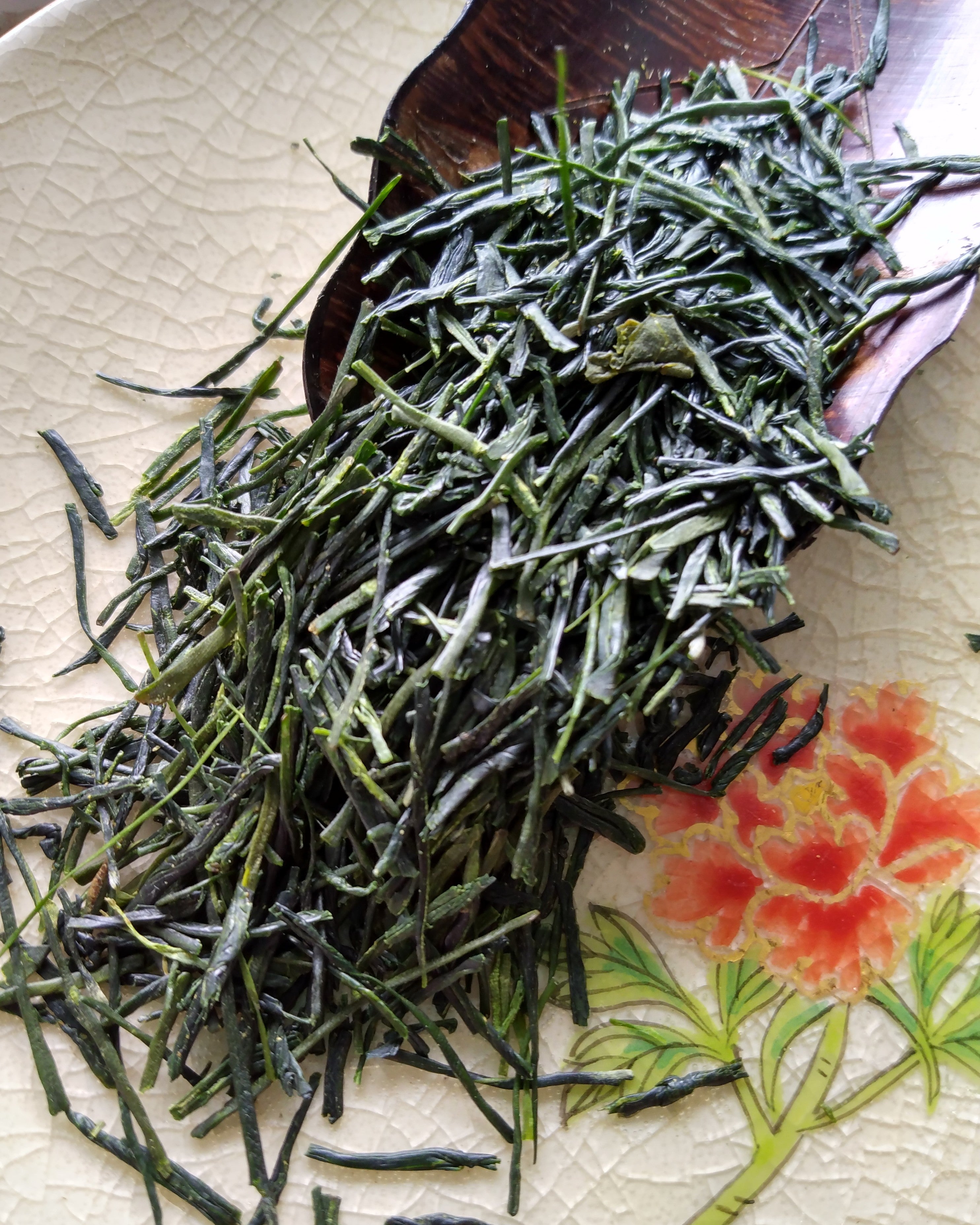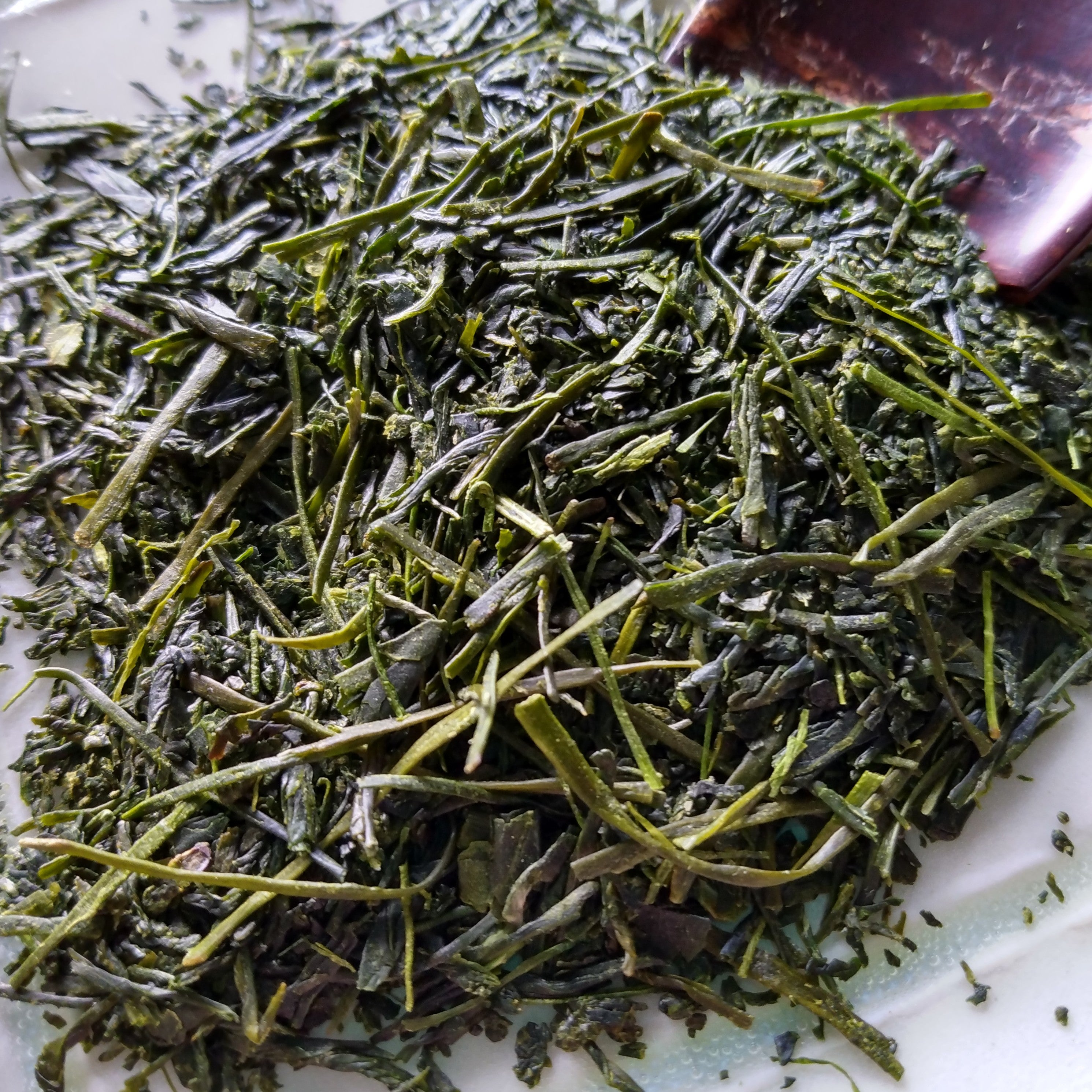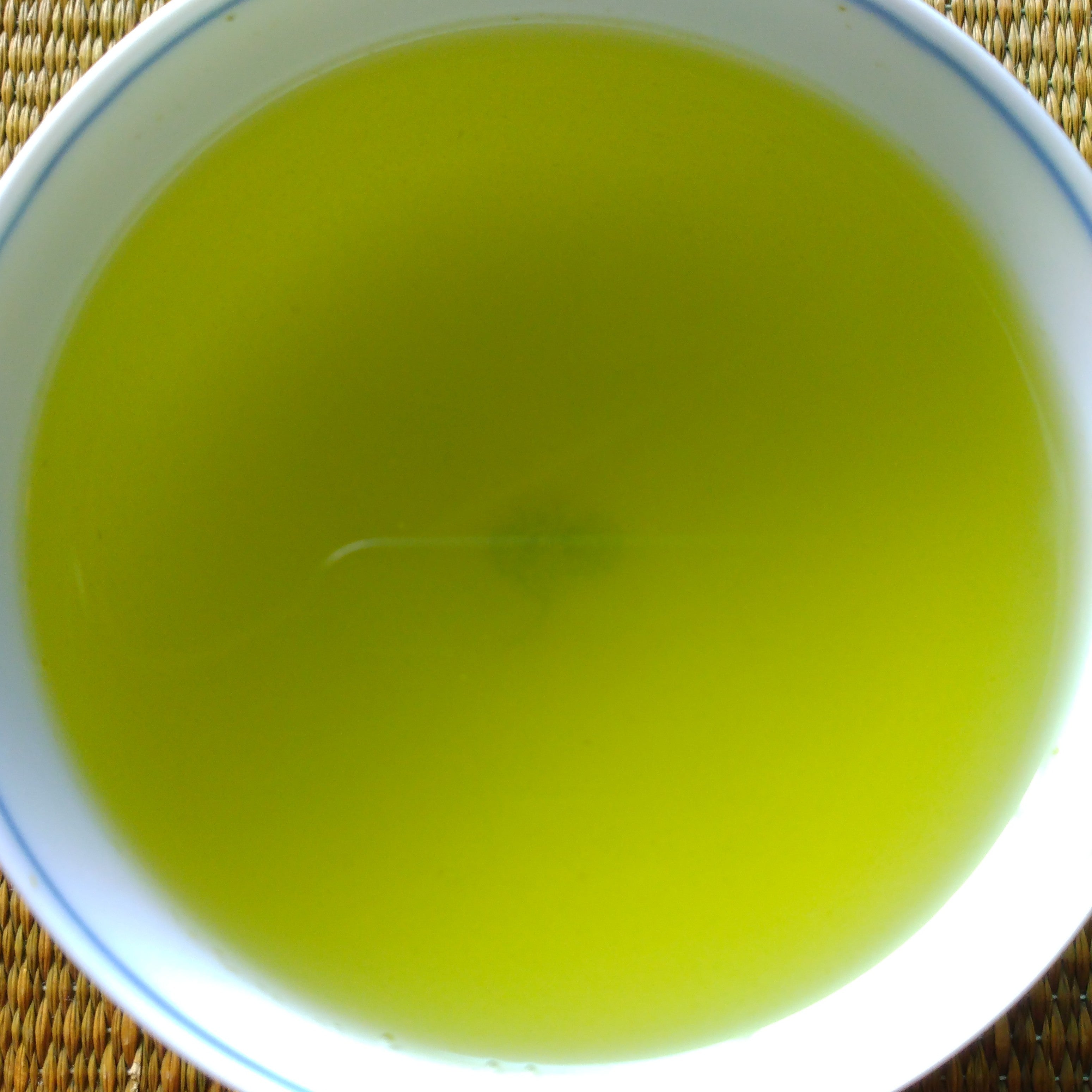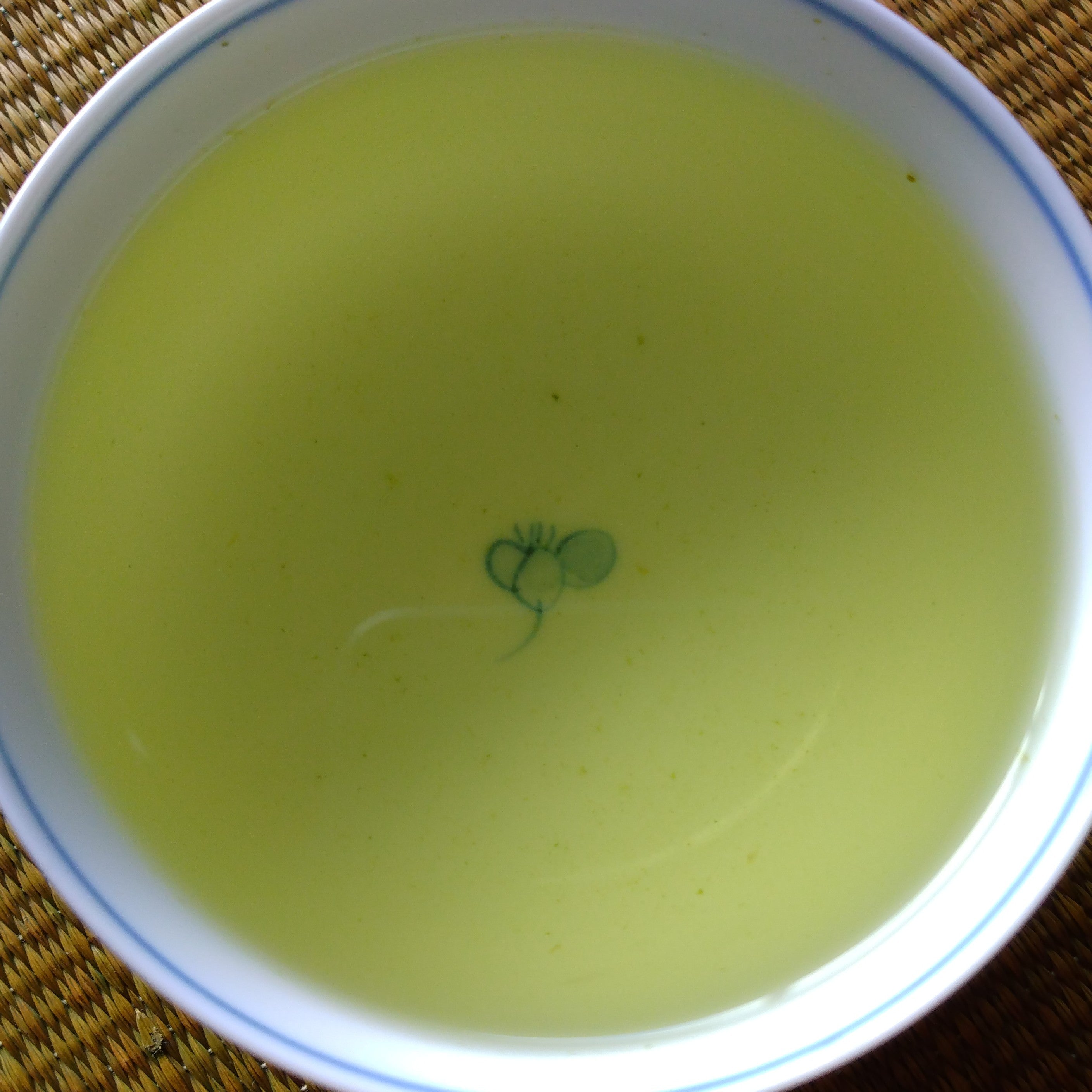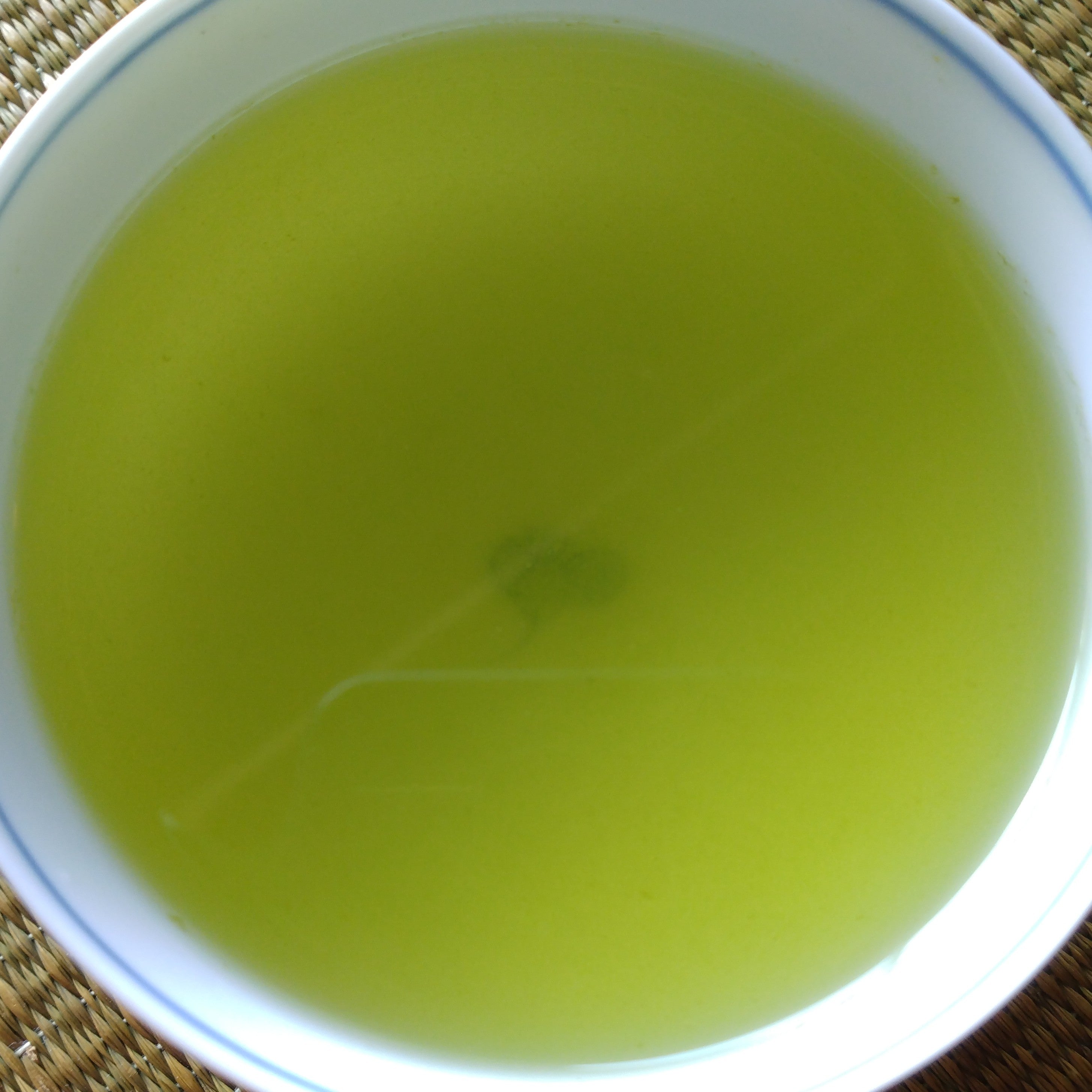Description
Shirahagi (a poetic tea name meaning White Bush Clover) Sencha, Sayamacha, Saitama Pref., 50g - 2025 Shincha (New Harvest Tea). Naturally grown with no synthetic pesticides or fertilizers.
Origin: Iruma City, Saitama Prefecture
Cultivar: Saemidori and Yabukita Blend
We are pleased to bring back Sayama-cha, teas from Southwest Saitama Prefecture, after a long absence. This particular tea is a Sencha created by Shimizu-san of Bizenyacha in Hidaka, Saitama.
Unlike some of Shimizu-san's Ichou (withered and lightly roasted) Sencha that some call Japanese Green Oolong, with mild roasted flavors, this Sencha created by traditional steaming method is more similar to the steamed Sencha to which most are accustomed. Then, just a very light roasting is applied to bring out the flavor of the leaves. Infusions brew from a light golden green to a rich emerald green, and bring forth a smooth, full bodied cup with a faint grassy aroma in just a short amount of time. There is a fair amount of amami (sweetness) with notes of sweet grass and honeydew melon, and just a light shibumi (astringent) finish on the first infusion. The second of only a few seconds brings a bit more astringency, but with the same sweet notes in the background. I was able to pull five infusions with short steepings that brought forth good variety on the first three cups and cups four and five resembling the third (mellow, sweet, with low astringency). So, teas like this are not only flavorful, but a good bargain offering multiple infusions.
The Bush Clover plant in Japan is a universally recognized as a symbol of autumn, and has been widely celebrated in Japanese art and poetry for centuries. The flowers can be purple or white (shiro/a), and this tea references the white flowers, or possibly the white dew (shiratsuyu) known to settle on the plants in autumn. However, this Shirahagi can be enjoyed now and at any time throughout the year.
In this haiku poem by Basho, the delicate swaying of the bush clover is pictured with a detailed image of the dew on the white or purple flowers. Original and translation are examples from Dr. Gabi Greve's "World Kigo Database".
Shiratsuyu mo / kobosanu hagi no / uneri kana. Matsuo Basho (1644-1694)
Bush clover undulates / without scattering / the white dew. trans. Stephen Addiss.
